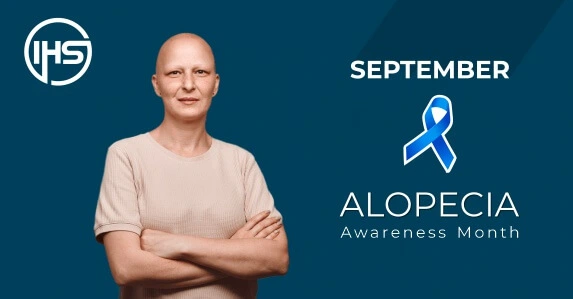



"In the vibrant shades of life, there exists a thread, delicate yet resilient, that weaves through the stories of countless individuals. And that thread is the thread of Alopecia Awareness Month, a time when we come together to celebrate the beauty of diversity and ethnicity".
IHS Hair Replacement is a hair replacement brand based in West Kensington in West London. We provide a full head of hair achieved through our hair integration procedure giving you confidence and life.